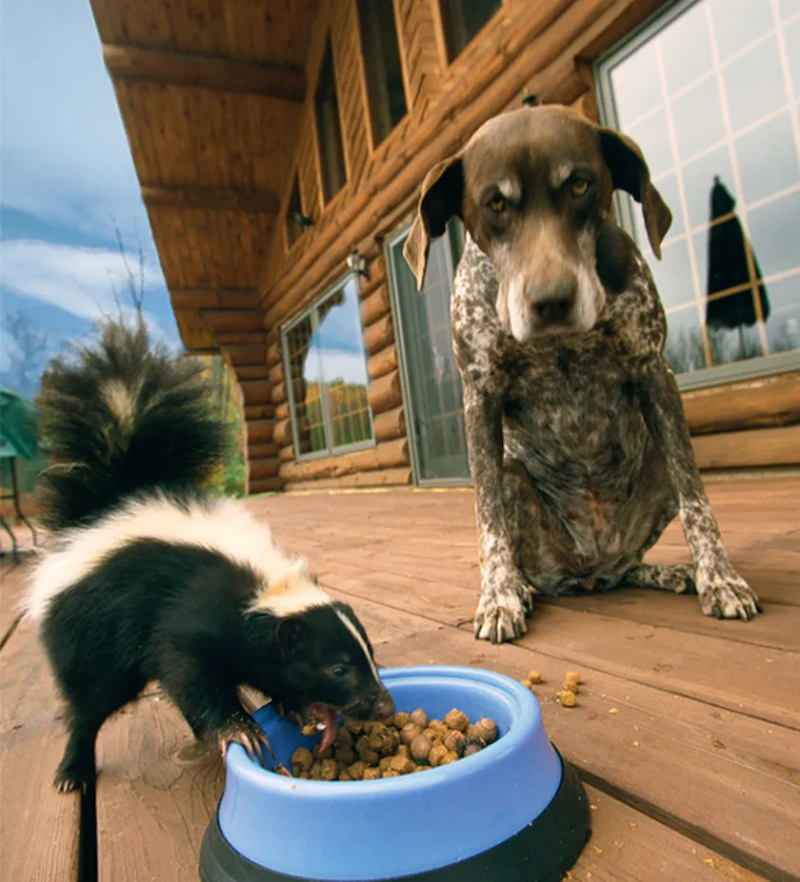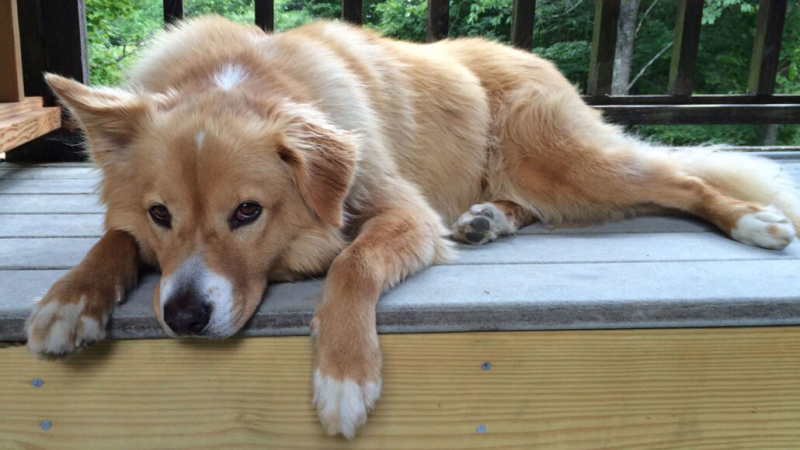Dogs
Dogs are also one of the predators of skunks that eat skunks.
Even dogs have the power to kill and consume skunks, but they usually choose not to. Some dog breeds are capable of killing a skunk, particularly the predatory kinds that we keep at home. However, if the skunk is ready for the assault, the dog will usually flee due to the skunk's foul odors.
Your dog won't emerge from it smelling like roses if he ignores the skunk's foul warning and ends up murdering the animal. The dog confronts additional dangers, such as getting bitten or scratched, in addition to the skunk's poisonous spray, which can irritate the dog's eyes, nose, mouth, and throat and create inflammation. It is advisable to make sure that your dog is kept away from skunks.
Skunks are rabies carriers. Your dog could have been exposed to rabies if he was bitten by a skunk carrying the disease or if the skunk's saliva was consumed as he was being killed. Look for bite marks and open wounds on your dog, and treat any that you find with disinfecting soap. Take the dog to the doctor so that it may be thoroughly checked if you have even the slightest suspicion that the skunk bit the dog. Take the skunk's body for testing as well, if you can. It's also conceivable that your dog's encounter with the skunk resulted in non-rabies wounds. Skunks hiss and spray to ward off an assault, but once a battle starts, they will scratch and bite.










